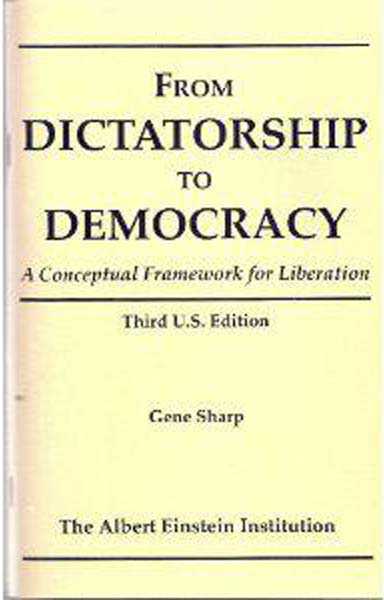
This book is a great work in its own right. In terms of real-world impact, it measures above Thomas Paine’s writings, having been used by non-violent movements in dictatorships around the world.
It is also a good introduction to study of nonviolent movements, before diving into all 902 pages of “Politics of Nonviolent Action”
Excerpts below are from an article in the Wall Street Journal, 13.09.2008:
Mr. Sharp’s writings on nonviolent resistance have been studied by opposition activists in Zimbabwe, Burma, Russia, Venezuela and Iran, among others. His 1993 guide to unseating despots, “From Dictatorship to Democracy,” has been translated into at least 28 languages and was used by movements that toppled governments in Serbia, Ukraine, Georgia and Kyrgyzstan.
Although nonviolent struggle has played a major role throughout history, Mr. Sharp was among the first modern scholars to take a comprehensive look at all the various movements, from the civil-rights struggle in the U.S. to uprisings in Eastern Europe.
In his writings, Mr. Sharp teased out common principles that make nonviolent resistance successful, creating a broad road map for activists looking to destabilize authoritarian regimes. Mr. Sharp’s magnum opus, the 902-page “Politics of Nonviolent Action,” was published in 1973. But the main source of his success is his 90-page “From Dictatorship to Democracy.”
This slim volume offers concise advice on how to plan a successful opposition campaign, along with a list of historically tested tactics for rattling a dictatorial regime. Aimed at no particular country, and easily downloadable from the Internet, the booklet has found universal appeal among opposition activists around the globe.
Though he warns readers that resistance may provoke violent crackdowns and will take careful planning to succeed, Mr. Sharp writes that any dictatorship will eventually collapse if its subjects refuse to obey.
